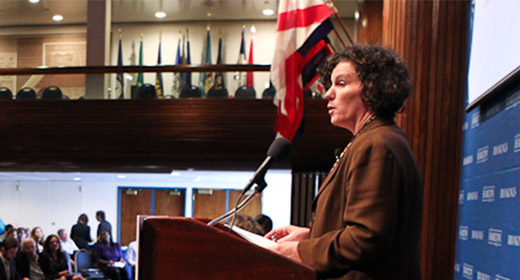
"I am happy to yield the point that, everything else held constant, a person will be happier without debt than with it," writes Susan Dynarski in an August 8 post, "What We Mean When We Say Student Debt Is Bad," published by The Upshot, The New York Times' curated blog on politics, policy, and economics. However, she continues, "The key phrase here is 'everything else constant.'"
A recent Gallup poll, "Student Debt Linked to Worse Health and Less Wealth," shows that college graduates who borrowed money to finance their educations are less happy, healthy, and wealthy than college graduates who borrowed nothing. Articles in sources such as US News & World Report, "Student Debt Hurts More Than Your Wallet," have interpreted Gallup's poll results to mean that student loans themselves are to blame for health, emotional, and financial problems. Dynarski says this conclusion is badly formed, because it lacks what amounts to a control group: the "alternate-universe selves" of the debt-ridden college students, "who did not go to college because they had no loans to turn to."
Would college graduates be happier with no debt? Probably. But what if no debt meant no degree? "I have a mortgage because I have a house," Dynarski says. "I would be less happy with no mortgage and no house."
Susan Dynarski is a professor of public policy at the Gerald R. Ford School of Public Policy, and a professor of education at the University of Michigan's School of Education. She is co-founder of the Education Policy Initiative, which engages in applied, policy-relevant education research designed to improve overall educational achievement and outcomes.